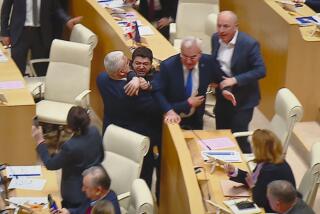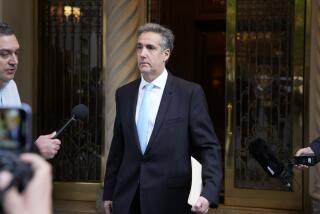Shimon Peres, Nobel Peace Laureate, Israeli President and Prime Minister dies
Shimon Peres, who died on Wednesday at the age of 93 from multiple organ failure after being hospitalized two weeks ago due to a stroke, was the President of Israel from June 2007 to July 2014, after having been the Prime Minister twice, from 1984 to 1986, and from 1995 to 1996.
In 1994, he received the Nobel Peace Prize together with Palestinian President, Yasser Arafat, and the then Prime Minister of his country, Yitzhak Rabin, after they negotiated and signed the Oslo Accords.
His political career throughout seven decades is considered the longest in Israeli history.
Peres was born in Poland on August 2, 1923 with the name Szymon Perski. In 1934, under the British Mandate, he immigrated with his family to Palestine, where his father had previously settled in 1932.
In his childhood, he moved to a kibbutz in Galilee, where he worked as a livestock farmer and joined the youth group of the centerleft Mapai Party. He was elected as the secretary of the group in 1944, and in 1946 he was one of the delegates at the Zionist Congress in Basel, Switzerland.
In the shadow of BenGurion, the founder of the State of Israel, Peres made a brilliant career, and in 1947 he was incorporated into ‘Haganah’, the early Israeli defense organization, coinciding with the UN initiated plan of the partition of Palestine in the same year.
A year later, after the proclamation of the State of Israel, he was appointed to head the naval service. In 1949, he was director of the Defense Ministry’s delegation in the United States, and took the opportunity to study at Harvard University and New York University.
Between 1952 and 1953, Peres was Deputy DirectorGeneral of the Ministry of Defense, and then DirectorGeneral. After that, he became Deputy Defense Minister from 1959 to 1965, a period in which he helped consolidate the Israeli military power, including its nuclear program, with assistance from France.
In 1965, he joined BenGurion and General Moshe Dayan and formed a new party, Rafi, which rivaled Levy Eshkol, the then Prime Minister. In 1967, Eshkol formed a national unity government in which Peres held various positions, and from 1969 under Israel’s fifth prime minister Golda Meir.
A member of parliament since 1959, Peres was also a member of the Mapai Party from 1959 to 1965, a founder and a SecretaryGeneral of the Rafi Party in 1965, a member of the Labor Party since the merger between both parties in 1968. He was also elected as president of the Labor party in 1977.
Peres served as Minister of Economy from 1969 to 1970; Minister of Transportation and Communications from 1970 to 1974; Information Minister from March to June 1974; and Minister of Defense from 1974 to 1977.
He was the acting Prime Minister of Israel from April to May 1977, and in June he was elected head of the Labor Party, replacing Rabin, who resigned as a result of having a bank account abroad.
He lost the 1977 elections to Menahem Begin, and spent several years as head of the opposition. In 1984, he became the eighth Prime Minister of Israel in a unity government with the rightist Likud.
By agreement between the two parties, he was head of government until October 1986, when he became Foreign Minister.
After the 1988 election, the Labor party and Likud renewed their coalition, and Peres served as Vice Prime Minister and Minister of Finance in a government headed by Yitzhak Shamir.
But after a scandalous crisis known as the ‘the dirty trick’, when the ultraOrthodox parties backed out on a deal to form a government, Peres was ousted in 1990. Although he had the mandate to form a new government, it was impossible. Shamir would continue as the Prime Minister.
In February 1992, Peres lost his leadership of the Labor Party to Rabin as well as his candidacy for the elections in June 1992.
Following his election victory, Rabin appointed him as Foreign Minister.
As Foreign Minister, he achieved important agreements between Israel and Palestine such as the 1993 Declaration of Principles of Washington, which laid the foundations for a Palestinian autonomy and the negotiating process.
After Rabin’s assassination in November 1995, he became the head of government, but in May 1996 he lost the elections against Benjamin Netanyahu.
After the 1999 elections, when Netanyahu was defeated by Ehud Barak, he appointed Peres as Regional Cooperation Minister of Israel.
On July 31, 2000, he lost by six votes to Moshe Katsav during the presidential election.
On February 25, 2001, he was offered to be the interim leader of the Labor Party after Barak lost the elections to Ariel Sharon. Sharon formed a coalition government with Peres as Foreign Minister, but in October 2002 it was dissolved after internal pressures.
In 2004, he was appointed vice prime minister. In November 2005 he left the Labor Party to support Ariel Sharon and his new Kadima party.
In March 2006, he was appointed Vice Prime Minister in the cabinet of Ehud Olmert. Then in June 2007, he was elected President of Israel after his predecessor’s notorious sex scandal.
Peres concluded his duties as Head of State of Israel on July 24, 2014. He was replaced by the conservative Reuven Rivlin.
On January 24, 2016, he was hospitalized for the second time in ten days, due to a heart condition, and on September 5 he was implanted a pacemaker.
On September 13, he suffered a stroke that kept him hospitalized until Wednesday, when his vital organs stopped functioning.






